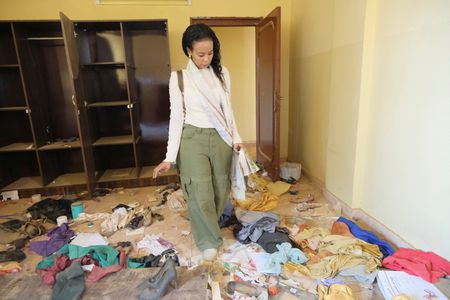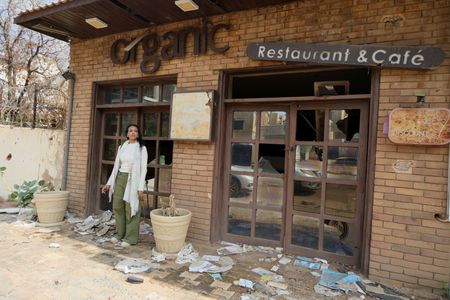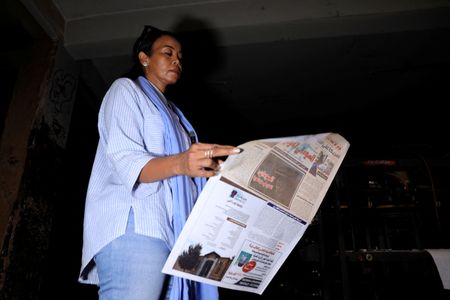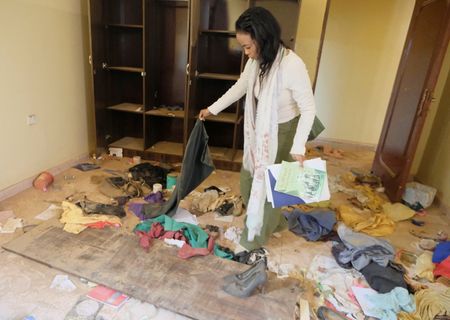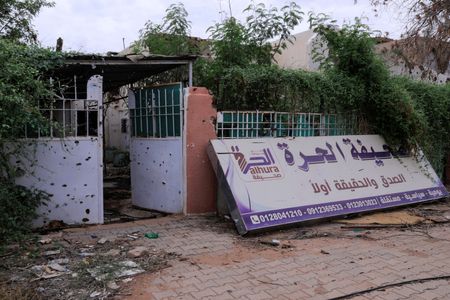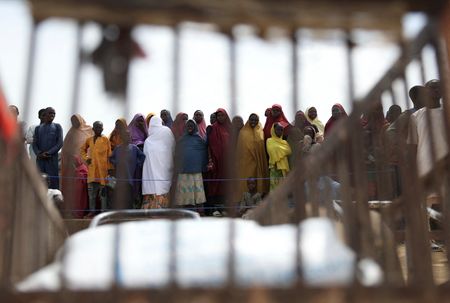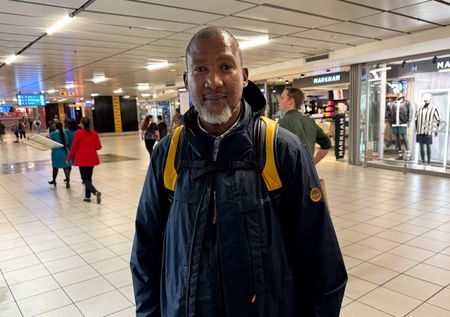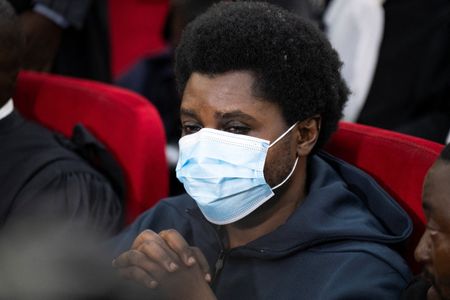KHARTOUM (Reuters) -When journalist Shamael Elnoor left Sudan at the outbreak of war in 2023, Sudanese newspapers were already suffering under an economic crisis and the worldwide shift to digital news.
Then the fighting brought presses to an immediate standstill – leaving busy newsrooms in Khartoum empty and ransacked.
“Since the first bullet was fired, all newspapers stopped,” said Elnoor, walking through a warehouse with old pre-war newspapers scattered around a printing press gathering dust.
A prominent freelance journalist known for her coverage of politics and the troubled Darfur region, Elnoor returning to Sudan’s capital this year after the army regained control.
“Sudanese press institutions, especially print newspapers stopped completely and lost their ability to perform their required role,” she added of the press’ demise.
Civil war between the army and paramilitary Rapid Support Forces has crushed Sudan’s economy, pushed half of the population of 50 million into hunger, and claimed tens of thousands of lives.
It also decimated Sudan’s media just as it was enjoying a freer period after decades of state control under autocrat Omar al-Bashir.
Independent newspapers, television channels, and websites had sprung up, though economic troubles meant publishers were shutting down or reducing print operations before the war.
Ad revenues then dried up as the war decimated businesses, Elnoor said.
DEATHS AND DEPARTURES
According to the Sudanese Journalists’ Syndicate, after the war began some 27 newspapers ceased operations, along with 32 radio stations and eight television stations.
About 1,000 journalists lost their jobs as they scattered across Sudan and the world. Among those who remained, 31 journalists have been killed, the syndicate’s Secretary General Mohamed Abdelaziz told Reuters.
Digital outlets have been springing up, but most are sponsored by the warring parties or other political interests, and there is a parallel disinformation war on social media.
Elnoor left her home in Omdurman, across the Nile from Khartoum, a month after the war erupted.
She headed first to Sennar, a city to the south on the Blue Nile, among the 14 million Sudanese who fled their homes.
She eventually went to the United Arab Emirates, before coming back this year after the army’s recapture of Khartoum, spurring the return of about 2 million Sudanese.
Elnoor, who never stopped publishing online, came back to find her home destroyed, but said the deserted and looted newsrooms were even more painful to see.
With fewer local reporters on the ground, warring parties watching them closely and requiring permits, and some violence by fighters towards journalists, Sudan’s media is hanging by a thread.
“Without a doubt we are entering an unprecedented era when it comes to press freedom, but it hasn’t yet been tested because journalistic activity itself has declined,” Elnoor said.
(Reporting by Eltayeb Siddig, additional reporting by Khalid Abdelaziz, writing by Nafisa Eltahir, editing by Andrew Cawthorne)

